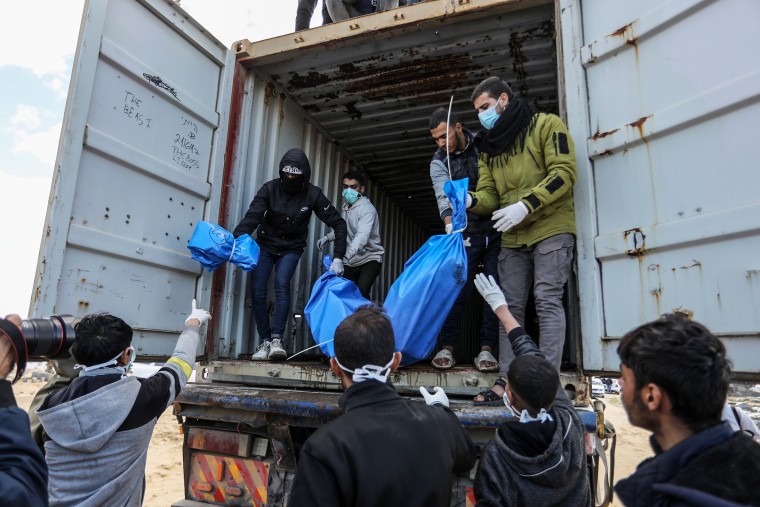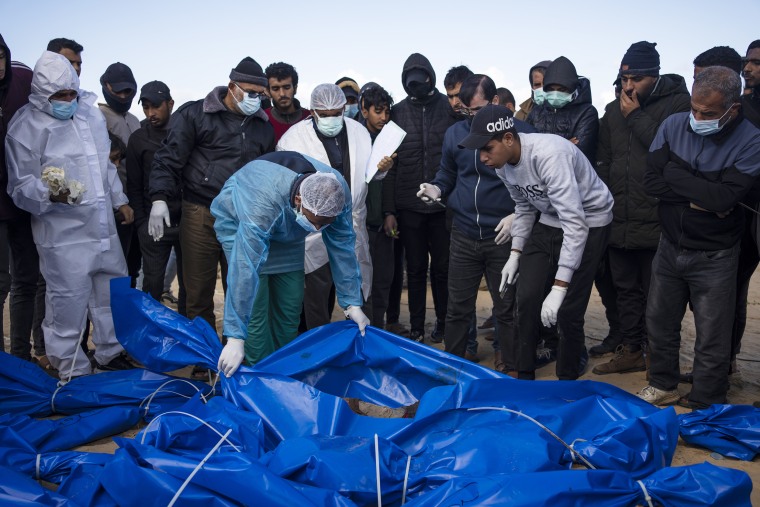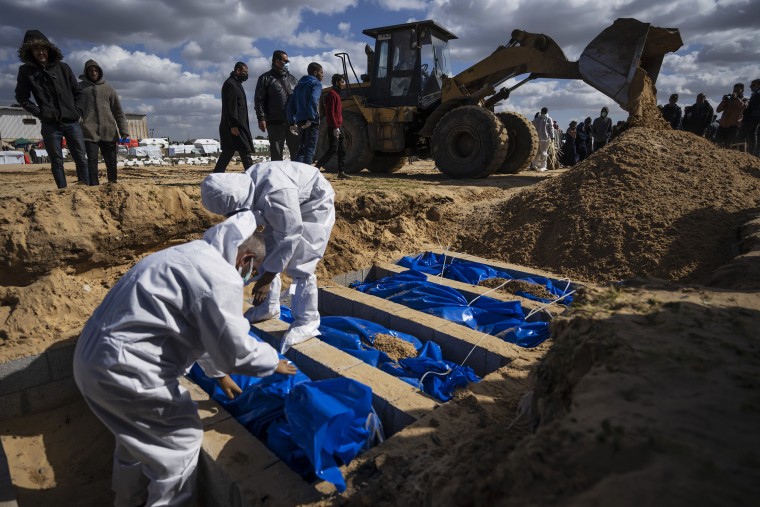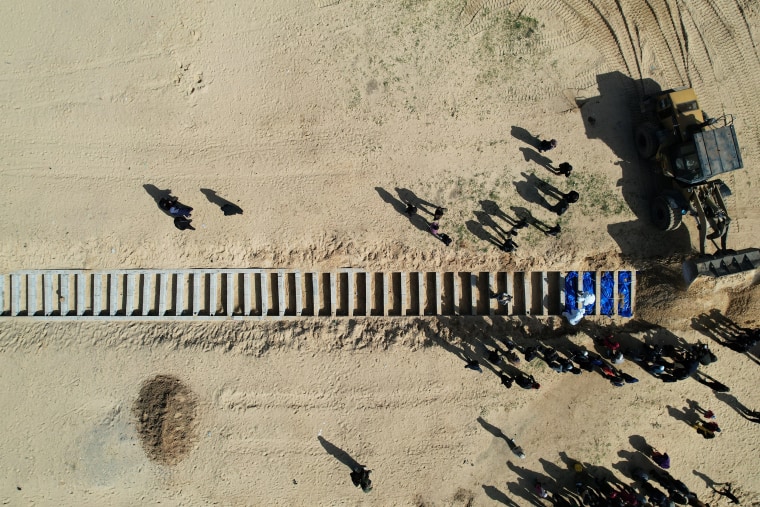Near a newly dug mass grave in the southern tip of Gaza, Palestinians on Tuesday went through several dozen body bags that had been hastily delivered by an Israeli container truck, hoping to find missing loved ones.
An NBC News team in Gaza recorded people unfolding the rolled-up blue sheets of tarp containing bodies and body parts in various states of decomposition. The bodies had arrived at the Israeli-controlled Kerem Shalom border crossing — Karem Abu Salem in Arabic.
The video captured a container truck filled with bodies backing up in the southern border town of Rafah. Several men in hazmat suits then passed the bodies to a small crowd of men wearing face masks.
“Be gentle, be gentle!” a man said as people handled the bodies one by one.
While Israeli officials declined to comment on the transfer of the bodies, they have said in the past that they are conducting “hostage rescue operations” in Gaza, including in cemeteries, but have not indicated whether they had found the bodies of any hostages in those efforts.
More than 130 hostages taken by Hamas militants on Oct. 7 are estimated to be in Gaza, some presumed dead.

As medics inspected the bodies and took pictures on Tuesday, gravediggers and workers prepared fresh graves in the bare earth to accommodate the corpses. Soon after, more bodies were dragged to the freshly tiled site and bags stacked on top of one another.
Issa Abu Sarhan said he was looking for his 28-year-old son, Mahmoud, believed to have been killed nearly two months ago when the school he and his family were sheltering in was bombed. He said Mahmoud was next to him when the bombing took place.
He frantically opened and searched through body bags strewn across the sand.
“Look, this is a leg — they are dismembered,” he said, referring to the grisly nature of the limbs, likely wounds from a blast. “I can’t recognize him because of the dismembered bodies.”
He then begged medical staff for any identification details or information on the bodies. A nurse replied that only numbers were provided and no other information was available.
“This man from the health department says that no one knows anything about these bodies. It means that I have to keep searching. They are giving numbers to the bodies, not names” Abu Sarhan said.


Abu Bilal, an eyewitness at the scene helping with the incoming corpses, said the bodies were first taken to Yousef Al Najer Hospital in Rafah and then brought to the mass grave site.
“This is the second mass grave in Rafah. Among those martyrs are children, women, old people and young people,” he told NBC News, adding that some could not be identifiable because of the condition they were in.
Palestinian officials did not immediately say how many bodies were in the bags. Abu Bilal estimated there were around 80.
Umm Nafis Al-Galben, visibly distressed, said she was angry and exhausted over the continued violence, death and destruction in the enclave.
“Where are the people of the world?” she said. “I saw those bodies and went crazy; I lost my mind.”
Children cried behind the bereaved woman as she wailed and listed the names of her dead family members, which included her grandson and granddaughter.
Meanwhile, Abu Sarhan vowed to continue the search for his son.
“I will keep searching for the body of my son, wherever there is a mass grave, I will search for his body,” he said. “I won’t sleep, and as long as they bring bodies like this, I will come and check for the body of my son.”

Earlier this month, NBC News reported that Israeli troops had damaged a cemetery in southern Gaza in what the country’s military indicated was part of a search for kidnapped hostages. At the time, eyewitness accounts and video showed several open graves with residents saying bodies had been taken away.
When asked for further information about the returned dead bodies this week, the Israel Defense Forces did not respond but referred NBC News to an earlier statement that said it was committed to finding all the hostages and returning any bodies still held in Gaza.
“The IDF conducts precise hostage rescue operations in the specific locations where information indicates that the bodies of hostages may be located,” it said in a statement.
“The hostage identification process, conducted at a secure and alternative location, ensures optimal professional conditions and respect for the deceased. Bodies determined not to be those of hostages are returned with dignity and respect,” the statement added.
